In the second feature in his series for Pride Month focusing on LGBTQ+ inclusion in football, Danyal Khan looks at the national landscape of inclusive clubs in Britain and how they are sparking – and in some cases, reigniting – a passion in LGBTQ+ people to play the beautiful game…
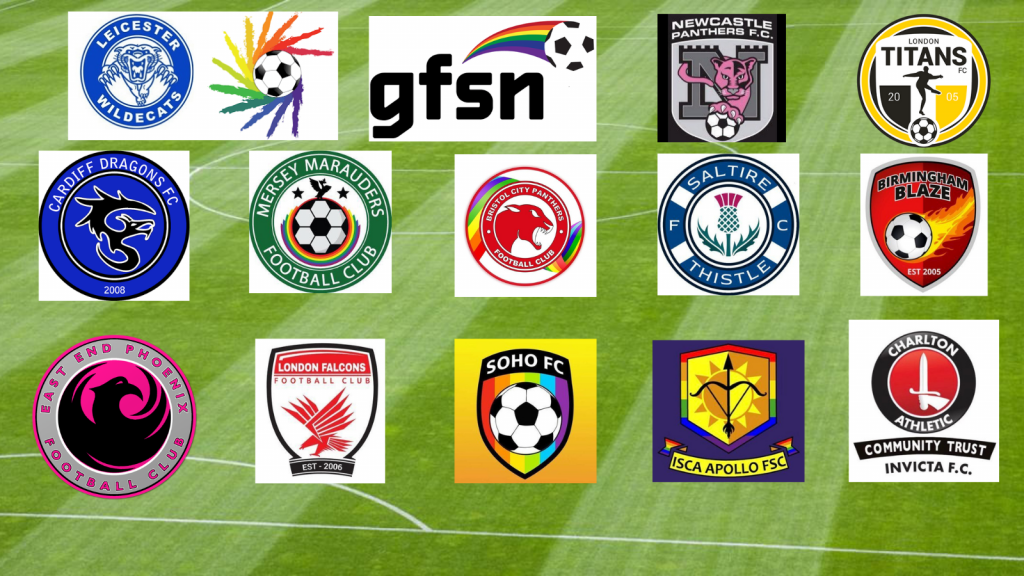
“The only time I saw any evidence of homophobia at Heyford was from the team manager.
“The referee had made a decision which the manager didn’t agree with and because of that he was a ‘mincer’.”
This incident, described in Neil Beasley’s 2016 book titled Football’s Coming Out, is one of many examples to showcase the idea that homophobia is arguably littered in football culture.
As a result, many LGBTQ+ people avoid participating in football due to the uncomfortable environment that is a result of deep-rooted homophobia that exists in the game.
Consequently, these fears from the LGBTQ+ population when it comes to participation in football and in more general sport are reflected in Stonewall statistics.
One stat which is really damning illustrates that 66 per cent of lesbian, gay, bi and trans people felt that there were problems with homophobia and transphobia in sport and that this acted as a barrier to LGBT people taking part.
A further stat from Stonewall highlights that one in eight LGBT people (12 per cent) avoid going to the gym or participating in sports groups because of fear of discrimination and harassment.
What is and has been the answer so far to changing these stats and finding a way to make sports and more specifically football more LGBTQ+ inclusive?
The rise of LGBTQ+ all-inclusive football clubs
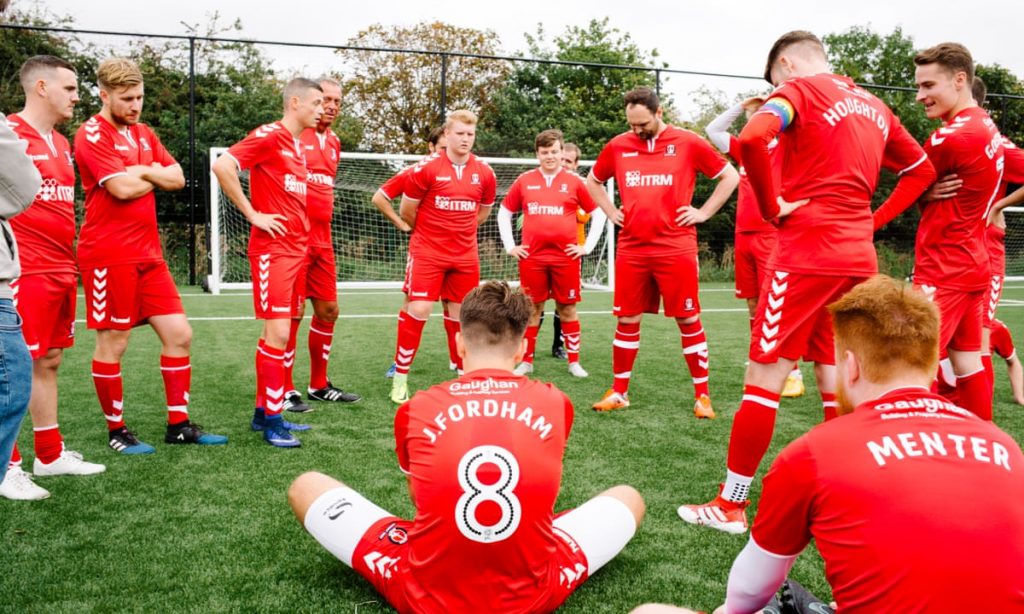
The death of Justin Fashanu, who was the first professional player to come out, raised the question as to why there couldn’t be an openly gay footballer playing at the top level.
Incredibly, since Fashanu’s tragic death in 1998, no player has had the confidence to take the step the Norwich City star once did.
The most obvious cause for this is the environment which is created by fan hostility in English football.
Other and more telling reasons why, as portrayed in the Stonewall statistics, suggest that the environment for playing as an LGBTQ+ person back in the 90s and in the early 2000s was just non-existent.
Thankfully, the Gay Football Supporters Network set up the GFSN League, which is the world’s only national league that is aimed at the LGBTQ+ community and is open to all.
“Now I’d never heard of a national gay football league,” ex-player and Coventry City fan Beasley admits in his autobiography, when relaying his memories from his playing days.
Beasley, after finding out about the prospect of playing ‘gay football’, signed for Birmingham Blaze.
Blaze are one of many teams around the country who compete in the GFSN league.
Leader and head of Villa and Proud, Samuel Timms, alongside many others like Beasley have been part of playing squads over the years for the Birmingham-based club, and Timms is thankful for what they have done for him personally.
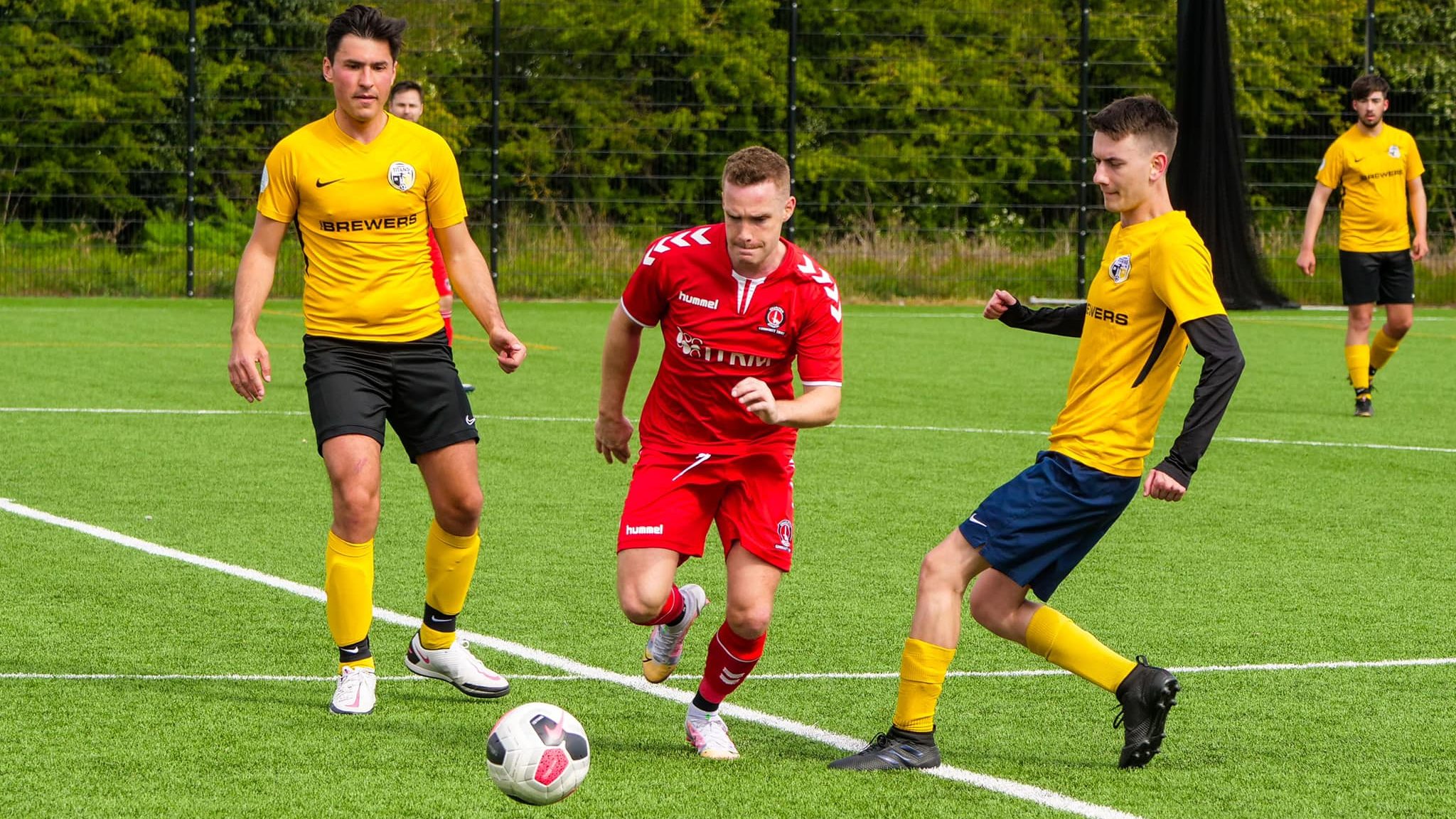
“I started playing for Birmingham Blaze when I was 21, and they gave me the empowerment to realise how to appreciate myself, but also appreciate all the hard work these clubs do,” Timms says.
Another club who are part of the GFSN League are Charlton Invicta.
Invicta are one of a small number of sides who are unique in relation to having the privilege of being officially affiliated with a registered football club that competes in the top four divisions of the English football set-up.
Charlton Invicta, as the name suggests, are officially affiliated to forward-thinking and diverse club Charlton Athletic, who have a good track record when it comes to LGBTQ+ work and making that community feel valued and part of the club as much as any other fan.
Whether that’s with showing their support for Proud Valiants or Invicta, the Addicks have set a real example to other EFL and Premier League clubs with regards to how to help make football more of an inclusive and representative place for the community.
Long-serving player and lifelong Charlton fan Gary Ginnaw explains how special the club are, and the lengths they have gone to past and present in supporting the LGBTQ+ population.
Ginnaw says: “It’s unique and special that Charlton as a club have an LGBTQ+ all-inclusive football team and a fan community that are all connected to the club.
“And that sums up just how wonderful the club are. The support that has been provided for Charlton Invicta is phenomenal. As a Charlton fan, it means the world to me that we have that support there.
“Last year, we were supposed to have our annual Charlton v Homophobia football tournament at the Valley if it wasn’t for lockdown.
“It’s a day all about promoting inclusion and diversity across the board. A few years ago, a player at Invicta who was a teacher, invited kids in his classes along to the event.
“That was really empowering for those to just come along and just enjoy the day, and just be part of it. It shows just how much Charlton as a club care about the community.
“Even their involvement in Pride in London demonstrates that they just keep wanting to do more and more, and they want to keep breaking the barriers and setting the right examples for the clubs to follow when it comes to how to endorse the LGBTQ+ community in the right way, and how to get them involved and interested in football.”
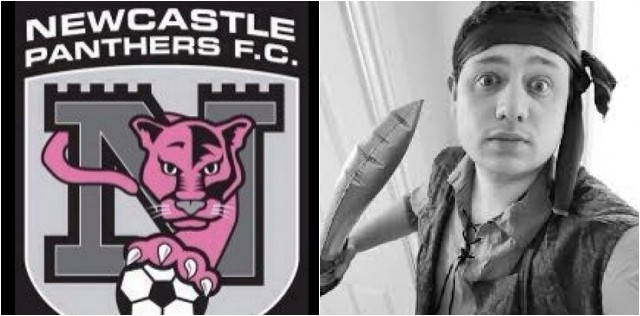
Not just Invicta, but clubs such as Newcastle Panthers make such a big difference to so many LGBT+ people’s lives.
Gary Wylie is a player for the Panthers, and he describes how the Newcastle-based team helped him.
“Before the Panthers, I felt there was a massive void in certain aspects of my life,” Wylie admits. “I had a great and still have a great group of friends, but it was a very small circle who weren’t really interested in football, so I now have a new group who share my interests.
“All of this has meant that I’ve grown in confidence since joining.
“The amazing training means I’m able to kick a ball properly.
“At times before the Panthers, I felt my days just repeated with very little to do, although I would not say it was a dark place but at times it was pretty close.
“It’s also pushed me to go to the gym (when not in lockdown) and eat healthier. All to make me a better player. I would say since, my quality of life has gone up massively.”
Panthers, like the majority of LGBTQ+ all-inclusive clubs, are not officially affiliated with any professional teams.
Despite the lack of relationship in that sense, in this case with the Panthers, their local neighbours Newcastle United offer a helping hand when it comes to contributing in a positive sense to operations at these inclusive football clubs.
Wylie reveals: “It’s massively important having a good relationship with local professional football clubs.
“At Newcastle Panthers, we are provided with a coach from Newcastle United Foundation.
“Every week, they provide the kits, the balls, the boot bags, the jumpers and even get us on the pitch at half time (although we have the torture of watching Newcastle play).
“This is all wonderful and it makes you feel like you are accepted. You know that these big clubs care about the community in relation to helping tackle homophobia within fanbases.”
In spite of clubs not having official affiliations to professional clubs like Invicta do to Charlton Athletic, professional clubs like Arsenal FC also contribute in a positive way to LGBTQ+ all-inclusive football clubs around London such as Soho FC.
Soho player and senior figure at the club Austin Chessell reveals how the Gunners have helped in the past to accommodate the team.
He says: “We have worked with Arsenal in the past by entering a Soho team in their club-hosted tournament which took place at their training ground.”
These professional clubs and Sunday league clubs have a big responsibility in welcoming these all-inclusive clubs to the football landscape, but it is often asked – what is the difference between playing for an LGBTQ+-inclusive side compared to any regular side?
Invicta’s Timms refers to personal experience and the need to create this welcoming environment to explain the differences.
“It’s a tough one, because foremost, it’s all about making sure that anyone with a sexuality different to heterosexuality feels like they can be open and play in an environment like ours,” Timms explains. “Anyone’s gender is welcomed at this club. LGBTQ+ is simply why Charlton Invicta exist.
“But we exist purely because of the amount of people who don’t feel comfortable in playing at a regular side.
“I’ve walked away from it in the past. I stopped at school and I remember the taunting in the changing rooms from other guys who put a lot of pressure on me. It wasn’t nice at all.
“The whole point of Invicta and other LGBT+ inclusive clubs being set up is to make sure that there is a community who feel like they can turn up to football and play.
“And the older LGBTQ+ generations have missed out in the past because of the lack of inclusive spaces like ours, so we don’t want the next generation to miss out too.”
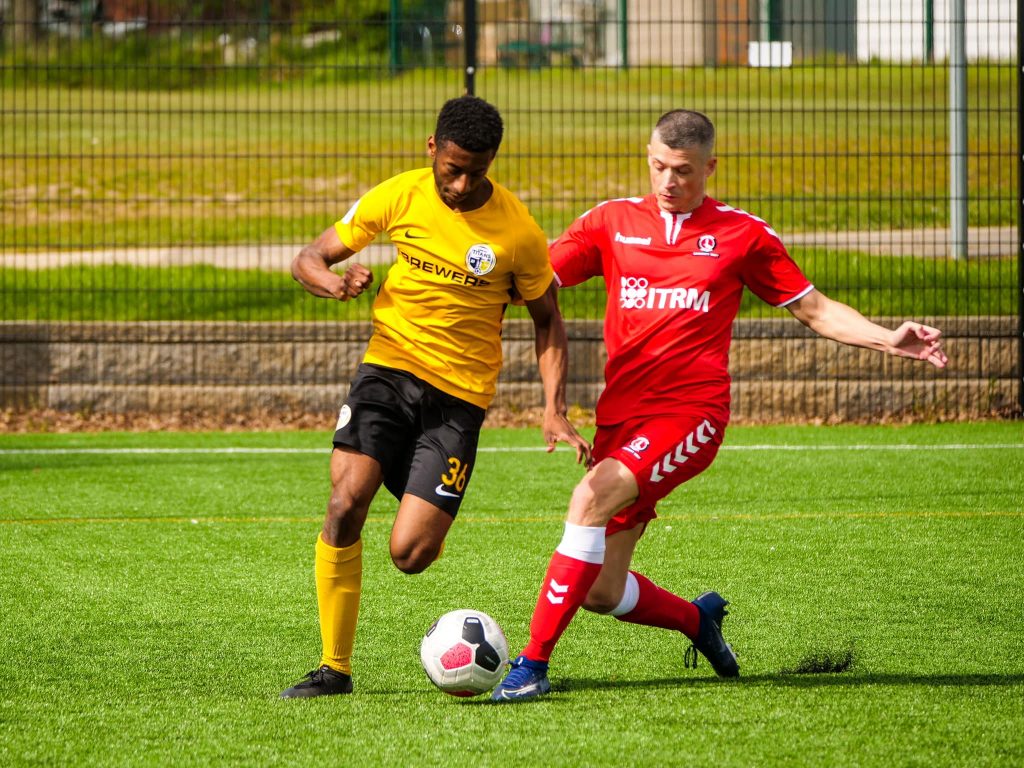
Timms’ partner Ginnaw speaks about the differences between inclusive clubs and regular clubs in more of logistical sense.
His side (Charlton Invicta) play in two leagues. The first of which called the London Unity League. This division is full of LGBTQ+-inclusive clubs around London. The second league is called the GFSN League.
In this division, Invicta travel around the country to play inclusive clubs.
Ginnaw went on to add: “We have also entered the Kent FA Cup, where we play any regular Sunday League teams, and that presents its own challenge with one or two games a year.
“But we have managed to develop a good relationship with a team that we lost too in the cup, and as a result we have managed to play them in pre-season.
“And they don’t mind playing us. They understand who we are. Now some of those players may never have come across any gay players in the past, but that’s the power of the beautiful game – to bring everyone together and united in the form of kicking out all discrimination in football.
“We as a club in the future want to branch out and join regular leagues, but we know that will present multiple challenges.
“There would be certain players who wouldn’t feel comfortable, so as a club we have to tackle that.
“So as a club, it’s important that we break these barriers and make this prospect of playing in a regular league a reality in the future when the game hopefully keeps becoming more progressive and inclusive.”
Having these inclusive clubs scattered around the country come with the risk of backlash from homophobic people who may play for regular teams.
Fortunately, according to experienced player Ginnaw, these incidents of homophobia are not a regular occurrence and as result, demonstrates the willingness and acceptance that many regular clubs have when it comes to inclusive clubs.
The Invicta player reveals: “These incidents are very rare, and it is only happened once for Charlton. We played a game against a team we hadn’t played before. We didn’t hear it, but my Dad was watching.
“And we were in the changing rooms getting ourselves ready for the game, and the other team walked out before us.
“Apparently a comment was said something along the lines of ‘oh yeah, this is the gay team. Don’t bend over in front of them.’
“It was interesting because we played the game and beat them. We played them off the park, and after the game their players were shaking our hands, almost as if the penny had dropped to the fact that gays can play well.
“And that showed you through one football match how you can change someone’s opinion.”
Who would have thought a positive would have come from a homophobic experience?
Being able to do your talking on the pitch with your skill set and changing people’s perceptions of LGBTQ+ people is one of many functions these clubs have.
These clubs also have very important functions for members of the LGBTQ+ community, like Soho’s Chessell explains.
“Our team is very multi-cultural. Some players arrive in London and do not speak English, so we help them to improve their English when they play with the team,” Chessell explains.
“Some players have visa issues, so we have helped provide statements to remain in the UK.
“Some players are not out but after joining Soho, they had the confidence to come out to friends and family.
“Not all people have been to Pride before, so they have enjoyed marching with us at London Pride.
“The away trips abroad to places like Germany and France, it has been great to see other countries and play with footballers from across the world who share our passion for football.”
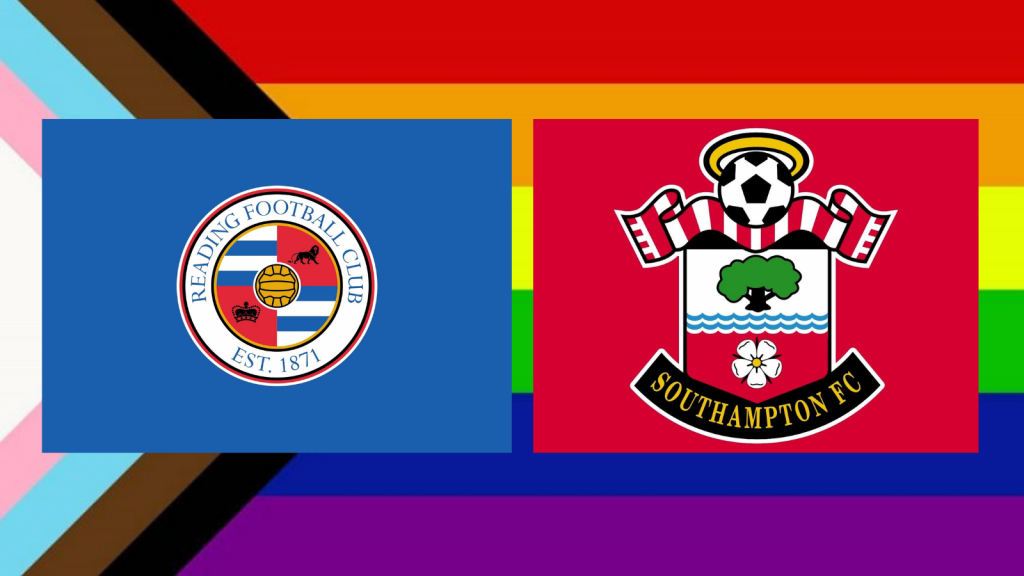
Unfortunately, not all areas of the country have LGBTQ+ inclusive football clubs, meaning that many members of the LGBTQ+ community are being deprived of the opportunity to have the functions explained above applied to themselves.
An example of an area that don’t have a club is Reading, and ex-Reading university student and current Soho player Chessell explains how the area could benefit from having one present.
“It would be great if Reading and other places have their own inclusive football team.
“I have been involved with the London Titans from their year of formation and I formed Soho FC with Gez (my partner) and our former chairman Maurice in 2013.
“If anyone is thinking of setting a team up, I would be happy to share my experiences with you. Just reach out to me on social media.
“It would have been great if there was a team in Reading when I was at University from 2001 to 2004.”
Another place that doesn’t currently have an LGBTQ+ all-inclusive football club is Southampton, a city where Charlton fan and football enthusiast Sam Clarke undergoes his studies at.
Clarke has ambitions of playing for Invicta at some point but admits it would have been nice to play for one in Southampton if there had been that opportunity.
The Charlton fan says: “You can’t put to words just how important these clubs are.
“Just look at the sheer size of Charlton Invicta, but the amount of the players they have in the squad is incredible.
“I follow them, and keep up to date with their scores, because they are a Charlton team, so one of my teams, and as a result I keep up with them.
“Every time they release their line-up or the scoresheet, it seems like they have a different side every game, which makes you think they have so many options.
“And when you look at how many people are playing the game they love in a safe environment, and not only that but also how many of them are Charlton fans playing with their own team’s crest on their chest.
“I can’t even imagine the feeling. I want to play for Invicta at some point in my life.”
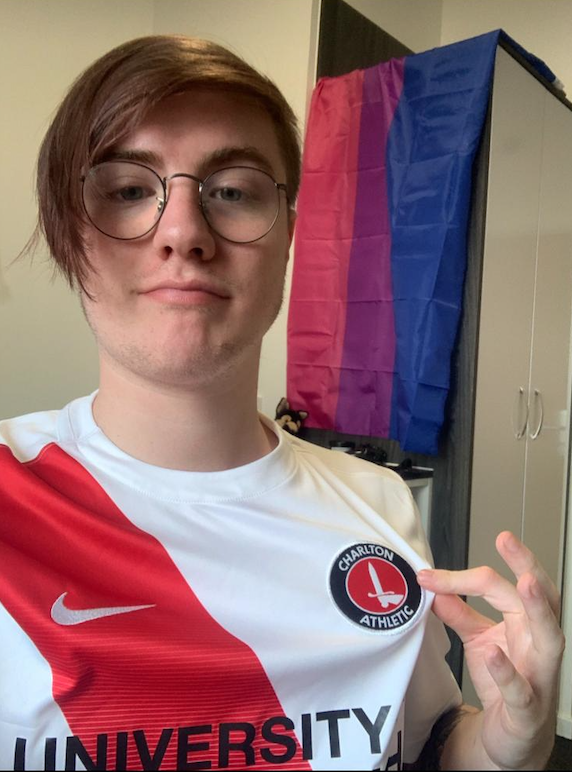
Clarke went on to speak about the pride he would feel playing for Invicta and reveals why he stopped playing football at a young age.
“I want to play with that badge on my chest, and I’ve spoken to Gary before about the feeling of pulling on a Charlton kit, and he described it to me as being special and a feeling you cannot describe,” Clarke says. “The feeling of knowing you have been endorsed as a gay man playing for a Charlton team – I want to feel that same feeling.
“The reason I stopped playing football was due to the fact that I didn’t feel comfortable. I had long hair and that sometimes was frowned upon in the wrong way by opposition players, but I’m looking to play for an LGBT+ inclusive club like Invicta one day.”
As a result of the growing amount of LGBTQ+ all-inclusive clubs that are appearing all over the country, we are starting to see a growing amount of LGBT+ people taking more of an interest in the sport.
However, there is huge scope for diversifying these clubs out all around the country so every member of the LGBTQ+ community has a chance to play in a safe space.
Not until this is achieved, will we reach a point where incidents described in Beasley’s book become a thing of the past.
Feature three on what the men’s game can learn from the women’s game when it comes to LGBTQ+ inclusivity and acceptance in football will be out soon on Sports Media LGBT+.
Sports Media LGBT+ is a network, advocacy, and consultancy group that is helping to build a community of LGBT+ people and allies in sport. We’re also a digital publisher. Learn more about us here.
LGBT+ in sports? Your visibility will inspire other people – sharing your story can be hugely rewarding and you don’t have to be famous to make a positive and lasting impact. We encourage you to start a conversation with us, in confidence, and we’ll provide the best advice on navigating the media as part of your journey so that you retain control of your own narrative.
Email jon@sportsmedialgbt.com or send a message anonymously on our Curious Cat.

